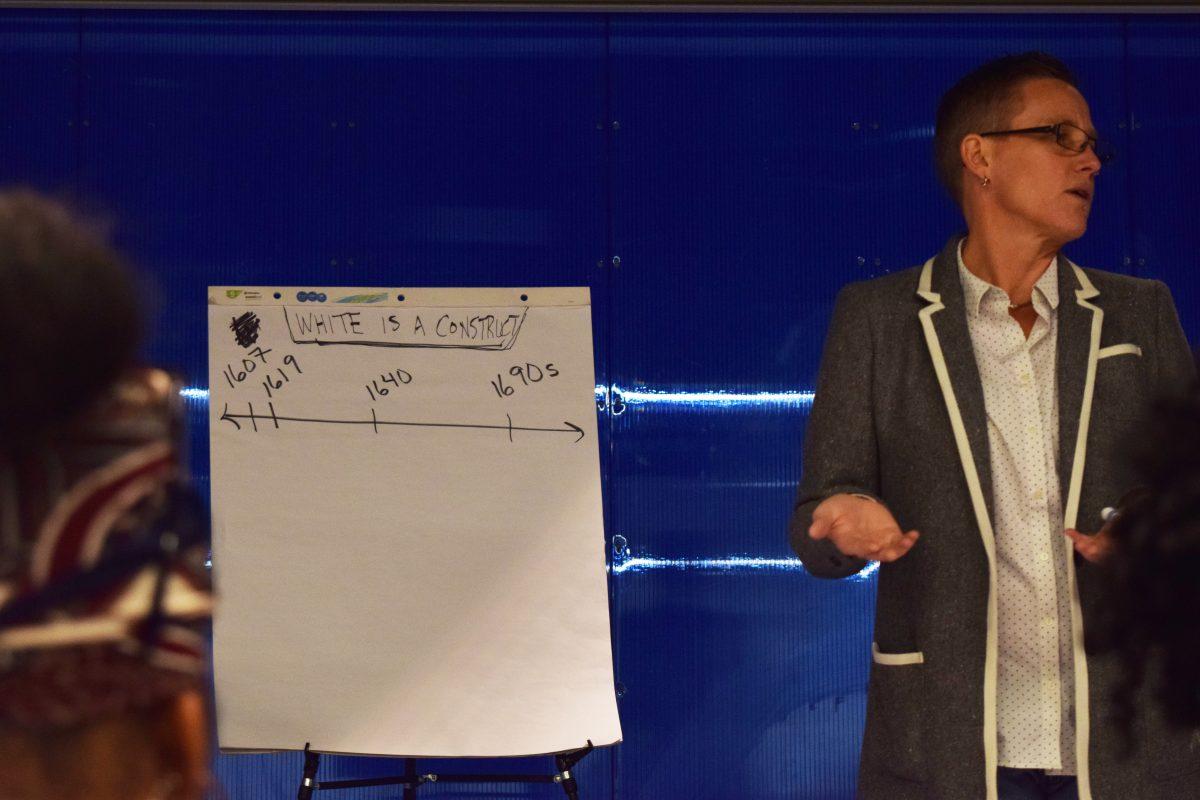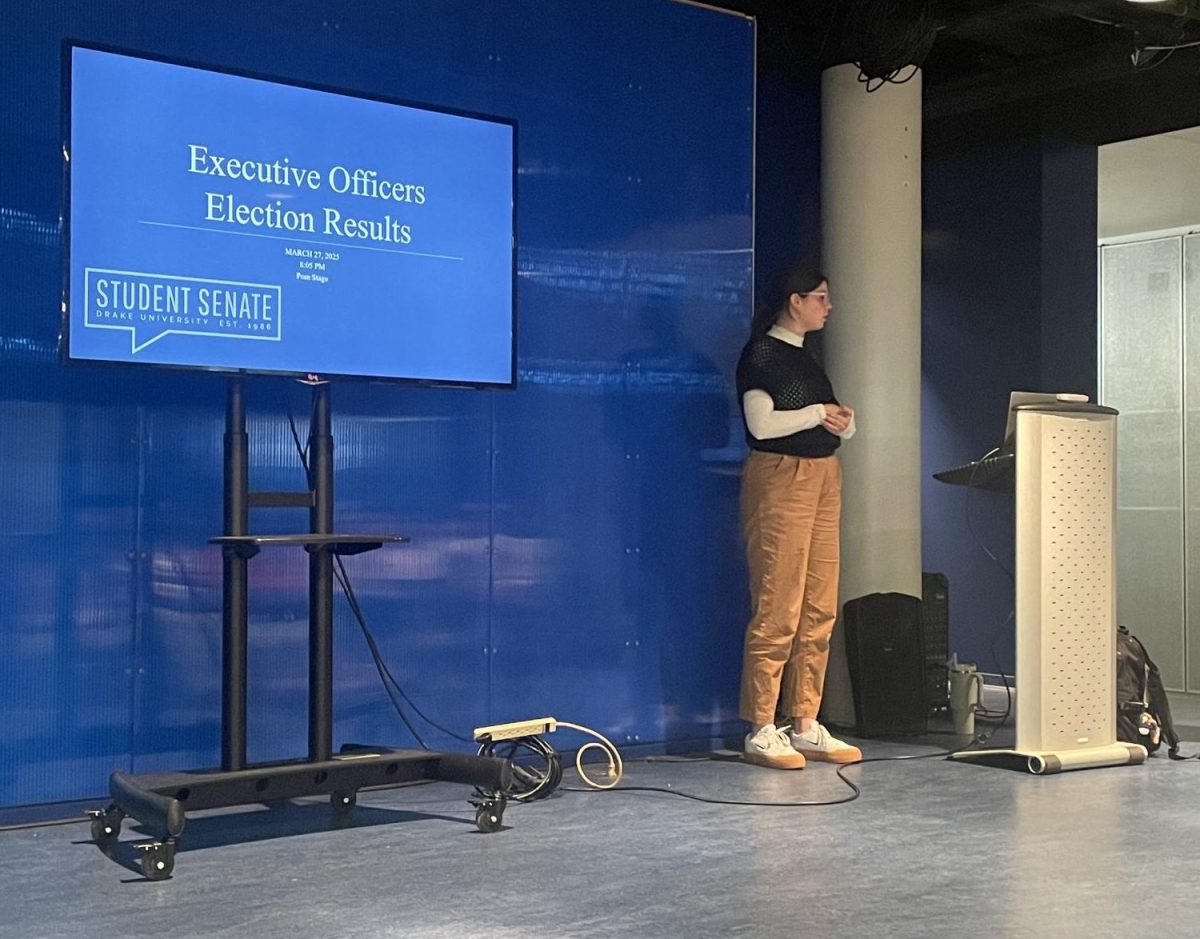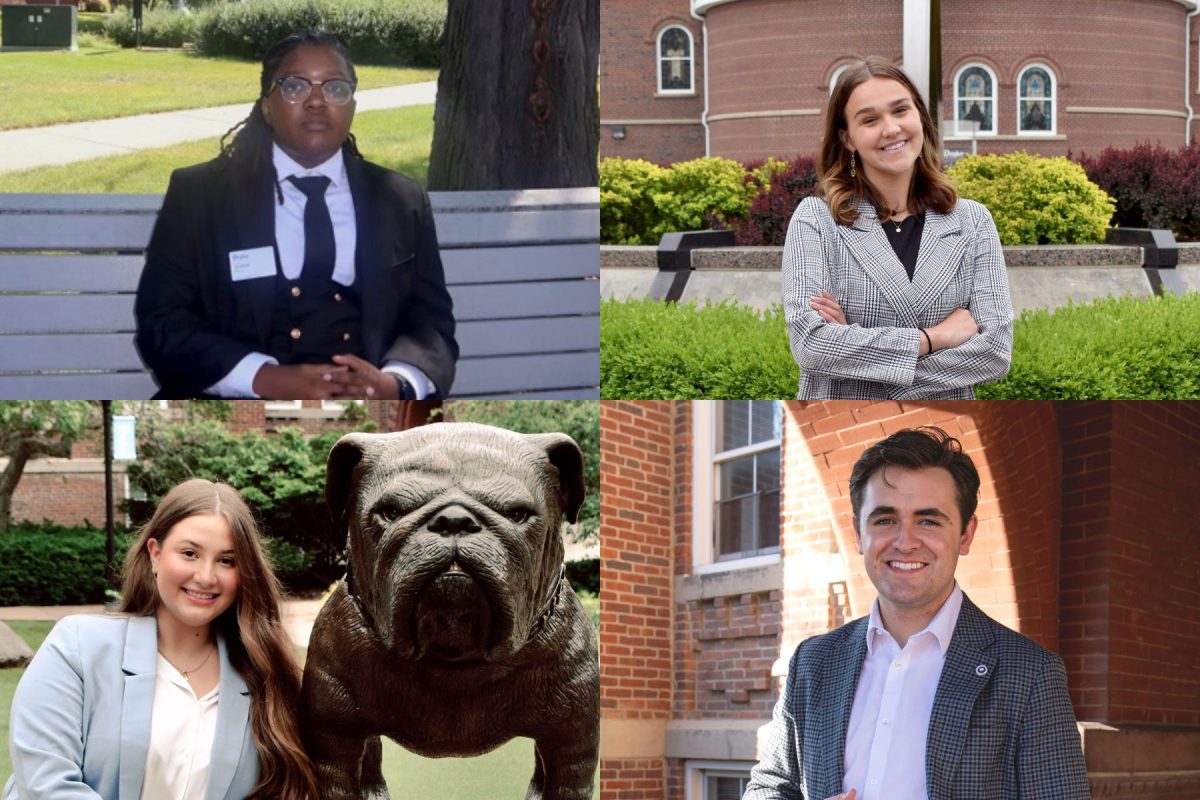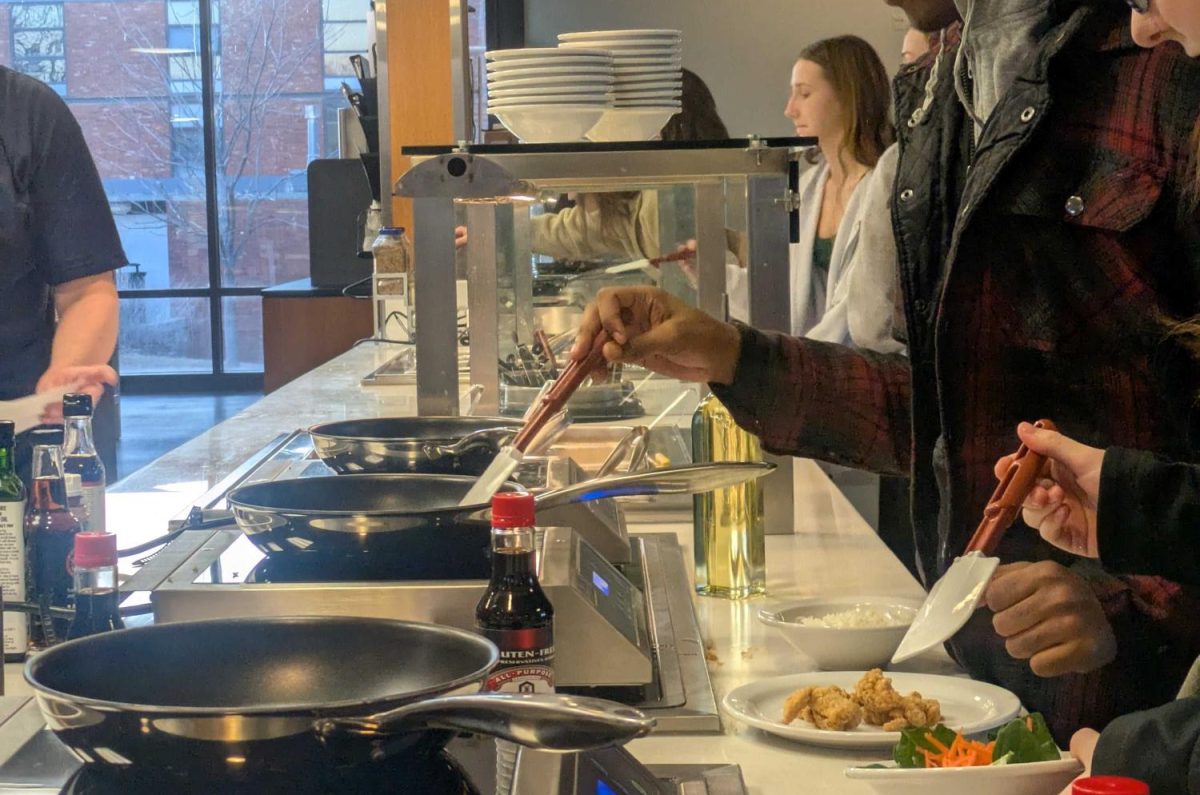Photo by MacKenzie Ekern
BY IAN KLEIN
In response to posters placed around campus with the phrase “It’s OK to be white,” Drake University’s Student Senate in tandem with UNITY Roundtable hosted a forum on Nov. 16 on Pomerantz Stage that was open to all students. The forum was designed to allow constructive conversation on the topic, “What kind of white people do we want to be?”
The hour-long forum was split into two segments. The first half-hour contained a lecture led by Professor Jennifer Harvey, who teaches philosophy and religion courses at Drake.
In her lecture, Harvey explained the theory that race is a “social construction.” The Oxford Dictionary defines “social construct” as “a concept or perception of something based on the collective views developed and maintained within a society or social group; a social phenomenon or convention originating within and cultivated by society or a particular social group, as opposed to existing inherently or naturally.” Harvey’s goal was to show how a greater understanding of history can make conversations about race today more productive.
Harvey used examples from seventeenth century America to provide evidence for where and how the social construction of race developed in our country. Harvey cited the use of religion and false scientific theories by European colonists as a means of drawing distinctions between themselves and indigenous peoples.
Harvey also discussed the favorable treatment of indentured servants in comparison to African slaves in America. Harvey told the story of John Punch, a runaway African slave who was caught with two other fleeing indentured servants. Although committing the same crime, the indentured servants were only relegated to six additional years of servitude. John Punch, however, was forced into bondage for the remainder of his life.
The second half of the forum was allotted for open discussion amongst audience members. Issues raised by students included dealing with unaware people, how to stop uncomfortable conversations and how white people can engage in the Black Lives Matter movement.
One concentrated area of discussion dealt with the idea of “white fragility.” Dr. Robin DiAngelo, author of the book “White Fragility: Why It’s So Hard for White People to Talk About Racism,” writes, “White fragility is a state in which even a minimum amount of racial stress becomes intolerable, triggering a range of defensive moves.” DiAngelo believes some of these “defensive moves” include outward displays of anger, fear and guilt.
Students at the forum provided solutions for dealing with “white fragility.” Taking less offense to the term “white privilege,” publicly signaling dissent to racism and finding a willingness to be vulnerable were all mentioned as ways for white students to improve conversations on race.
Students also advocated for more research to be done by all people on matters of race. Students provided numerous sources in which people can better educate themselves, including writings by renowned racial experts Theodore Allen, David Roediger and Ian Haney-López.
Bakari Caldwell, the community outreach senator for Student Senate, was a prominent advocate for the forum.
“I think the forum was a large attempt to better serve our campus and its structure as a white institution … I think that those who did show up to the forum learned something, no matter what their race,” Caldwell said. “We have to have more dialogue and education around the topic moving forward.”
First-year student Anna Gabalski concurred, stating, “Discussions like these are imperative if we as a society wish to bring taboo topics to light. Learning the history behind racial segregation and how it has shaped today’s view was extremely eye-opening, and being able to talk about it in this kind of setting allows students to be heard.”










